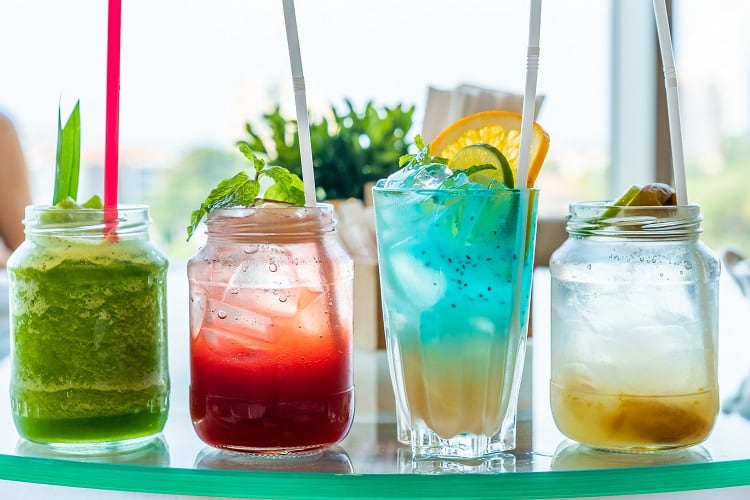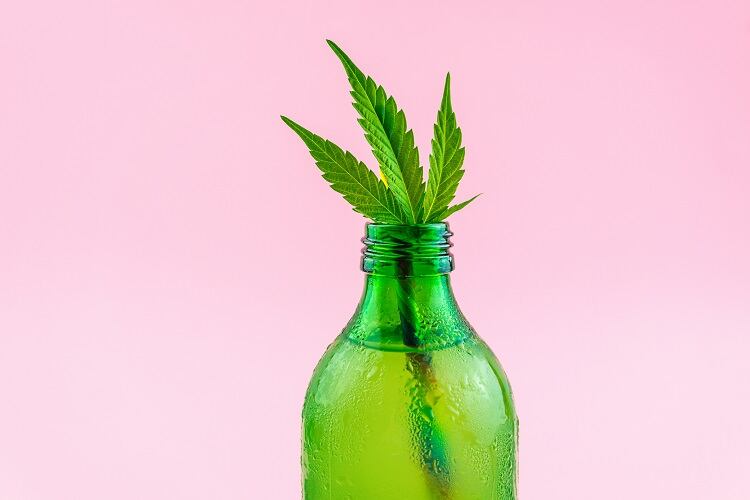The alcohol-free trend is on the rise. According to Nielsen data, alcohol-free beer is the fastest growing drinks trend, and 2018 data from Kantar revealed that non-alcoholic beer sales were up 58% year-on-year.
At the same time, demand for cannabidiol (CBD) is booming. In the UK alone, lobby group the Cannabis Trades Association (CTA) estimates that total sales of CBD and regulated medical cannabis stood at £160m in 2019 – up from £110m in 2018.
Is the merging of these two trends worth consideration? According to Lolly Watkins, account director at UK and US alcohol marketing company YesMore, CBD could be a ‘potentially attractive ingredient’ for the alcohol-free category.
An industry shift to non-alcoholic beverages
Industry has observed a ‘large shift’ towards non-alcoholic beverages of late, Watkins told this publication. And with one in five consumers choosing not to drink alcohol, beverage companies are responding to the trend.
“Alcohol-free spirits such as Seedlip and Three Spirit are now found in bars across the country, while Fentimans and Fever Tree are strongly representing not only mixers, but standalone RTDs.”
Truly great-tasting non-alcohol options like these remain hard to come by, she argued. For some brands, the ‘right formulation’ has not quite yet been realised. The mocktail category, for example, could further explored to help non-beer drinkers enjoy alcohol-free beverages.
“Mocktails are great, but still expensive – and for many people, they’re difficult to make at home. I expect to see a lot more ‘grown up’ simple soft drinks hit the market in 2020/2021,” the account director revealed.

For many consumers, however, the complete removal of something like alcohol in a traditionally alcoholic drink doesn’t ‘feel’ quite right. Watkins believes that CBD could have the potential to change those consumers’ perception of the burgeoning category.
CBD is a non-psychotic compound produced by the Cannabis sativa L. plant. Products containing CBD must have low or no levels of Delta-9-tetrahydrocannabinol (THC) – which is the psychoactive compound associated with becoming ‘high’ from cannabis.
“CBD is not burdened with the same stigma that alcohol has, yet it’s not ‘nothing either’,” Watkins told this publication. “The effects of CBD are notable and provide a sense of relaxation and calm, and have been proven to alleviate anxiety and insomnia – however as yet, it isn’t associated with any detrimental effects.
“This makes CBD a potentially attractive ingredient, as it could bridge that gap.”
Are consumers ready for CBD-infused booze?
A growing demand for alternatives to alcohol suggests that consumers are open to trying new products, both in the on and off trade.
“CBD has already been working in the UK with a largely positive perception with regard to health and mindfulness,” said Watkins. The younger markets will ‘certainly’ be more open to exploring this new territory she added. “Marketing to older groups is likely to require a concerted educational marketing effort.”
The biggest barrier to entry will therefore lie in educating consumers. This is not helped by the fact that we know very little about CBD and its long-term effects on our brains and body, the account director continued. “Case studies are limited to small groups and specific ailments. The most important piece in the CBD puzzle is investing in responsibility.”
Education will almost certainly come with regulatory approval. In the European Union, for example, CBD falls under the Novel Food regulation, meaning it requires pre-market authorisation.
And in the UK, the Food Standards Agency (FSA) has set a deadline for the CBD industry apply for Novel Food approval (31 March 2021). Only products that have commenced the application process will be allowed to remain on the market after this date.
“Even in the US, it’s still illegal under Federal Law,” Watkins told this publication. “The law of course will dictate how easy a product is to market. And currently the majority of food and drink companies infusing products with CBD are not investing in attention-drawing marketing.”
What is certain, is that a ‘break out success’ has yet to be achieved in the CBD drinks market. Watkins puts this down to CBD’s legal grey area.
“The FSA has only approved CBD as a supplement, not a food additive. I would imagine a lot of brands are waiting for the FSA to give it the green light, so to speak. However, there are brands out there right now selling food and drink with CBD in it – and as they’re already on the market, they’re going to shape the category.”
Masking a bitter aftertaste
CBD can cause formulation challenges in food and drink, due to its bitter aftertaste. In food products, for example, the bitterness can be counteracted by the addition of sweeteners or flavourings.
Yet in alcohol, Watkins said CBD’s astringent taste can actually work in its favour. “The taste itself is attributed to the terpene blend of the cultivar it’s been harvested from,” she explained. “Like beer hop varieties, terpenes in cannabis plants vary wildly, and farmers take great pride in growing their plants to have the ideal blend of terpenes for taste.
“Terpenes have also been shown to aid the bio-availability capabilities of CBD,” Watkins added.

CBD can therefore present ‘zesty lemon’ or ‘juicy mango’ aromas and flavours. And when blending in with drinks, Watkins argues such attributes can be advantageous – particularly given that one of the drawbacks of alcohol-free spirits is the distinct lack of ‘tongue burn’, or any remaining bitterness and astringency.
“The addition of CBD to a product like this would easily fill that gap. With cocktails, bittering agents such as angostura have been around for a while, so CBD is just another tincture bottle to add to the shelf.”
CBD: Fad or trend?
Watkins believes CBD is here to stay. “There are growing gaps in the market for alternative recreational products to smoking and alcohol, and CBD products are going to shape consumer behaviours as much as be defined by them.”
However, producers may be hesitant about adding CBD into drinks that already contain stimulants, such as alcohol and caffeine, she explained, due to the already strict regulations surrounding such products.
“For example, Fairtrade organic coffee could no longer be labelled as such with the addition of CBD, and any future dark marketing of alcohol may hinder the cut-through of any CBD messaging.”
In beverage format, therefore, be it beer, alcohol-free, or coffee, does the account director believe will – when infused with CBD – see most success?
“I would predict that CBD in alcohol-free alternative soft drinks will be one of the main contenders here,” she said.
“Of course, adding the tincture to cocktails is going to offer endless levels of creativity for mixologists to play with – the variation in flavours and aromas is going to produce some outstanding blends, and that’s a fantastic way for the on-trade to test CBD in their premises at low risk and cost.”


